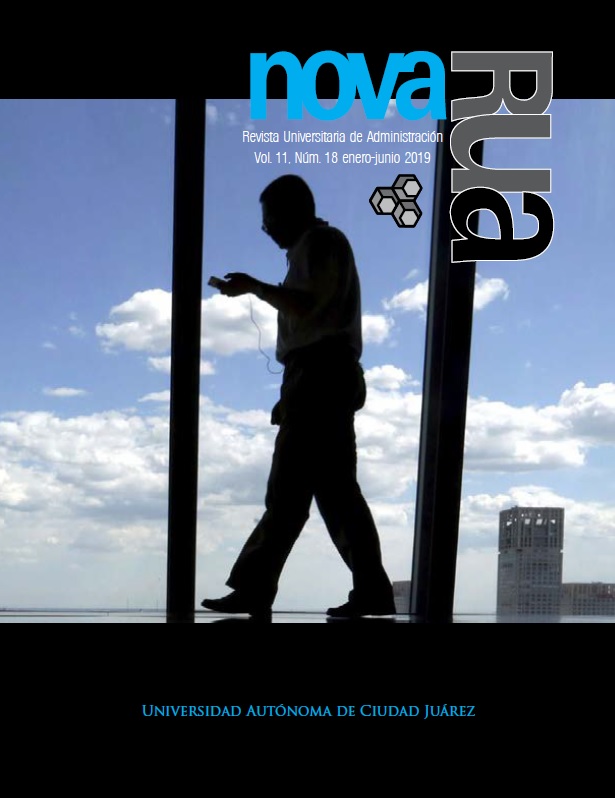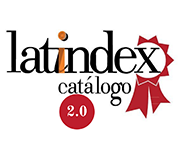Sostenibilidad y emprendimiento venezolano: visión contextualizada desde sus actores
DOI:
https://doi.org/10.20983/novarua.2019.18.2Keywords:
Entrepreneurship, Business Sustainability, Economic, Social, EnvironmentalAbstract
The purpose of the research is to unveil the experiences of entrepreneurs in the framework of their entrepreneurship and business sustainability, in the context of a chocolate processing company and its derivatives in the state of Carabobo.
The method responds to a qualitative investigation of descriptive character; with support in the technique of the interview. For this, the structuring of thematic units was used, highlighting the entrepreneurship from the exploitation of opportunities and strengthening of networks, economic, social and environmental sustainability, which were contrasted with theorists such as: Kantin (2004), Shapero (1984), Schumpeter (1961) among others. The findings show a successful entrepreneurship contributing to the local productive system, generator of well-being to its environment and balanced in a sustainable way.
References
Barcellos, L. (2010). Modelos de gestión aplicados a la sostenibilidad empresarial. Barcelona: Universitat de Barcelona.
Calderón, M. (2014). La creatividad y el emprendimiento de la enseñanza universitaria de hoy. Revista Escenarios (en línea):
(2): 64-75. Disponible en: https://goo.gl/SYXa-AG (última consulta: 9 de diciembre de 2018).
Drucker, P. F. (1995). La empresa creadora de conocimiento. Cómo las compañías japonesas crean la dinámica de Innovación. Nueva York: Oxford University Press.
Fernández, R. (2011). La dimensión económica del desarrollo sostenible. España: Club Universitario.
Gil, A. y Barcellos, L. (2011). Los desafíos para la sostenibilidad empresarial en el siglo XXI. Revista Galega de Economía, 20(2): 1-22. Universidad de Santiago de Compostela, España. Disponible en: https://goo.gl/WA23Az (consulta: 24 de noviembre de 2018).
Gilder, J. (1984). El espíritu de la empresa. Madrid: Espasa Calpe.
Goetz, J. y LeCompte, M. (1988). Etnografía y diseño cualitativo en investigación educativa. Madrid: Ediciones Morata.
Kantis, H. (2004). Desarrollo emprendedor. América Latina y la experiencia internacional. Nueva York: Edición del Banco Interamericano de Desarrollo (BID).
Martínez Minguelez, M. (2006). Ciencia y arte en la metodología cualitativa (2.ª Ed.). México: Editorial Trillas.
McClelland, D. C. (1961). La sociedad de logros. Princeton, Nueva Jersey: Van Nostrand.
Organización de Naciones Unidas (ONU, 1987). Informe Brundland [en línea]. Disponible en: https://undocs.org/es/A/42/427 [consulta: 30 de julio de 2018].
Reeder, H. P. (2011). La praxis fenomenológica de Husserl. Bogotá, Colombia: Editorial San Pablo.
Romero, E. (2012). Desarrollos sostenible: Hacia la sostenibilidad ambiental. Nueva York: Produmedios.
Schumpeter, J.A. (1961). The Theory of Economic Development.
(3rd Edition). Nueva York: Oxford University Press.
Shapero, A. T. (1985). The entrepreneurial event. Ohio: College of Administrative
Science.
Taylor, S. y Bogdan, R. (1987).
Introducción a los métodos
cualitativos de investigación.
(3.ª ri). Barcelona:
Paidós Ibérica.
The Global Entrepreneurship
Monitor [página web].
Disponible: https://www.
gemconsortium.org/ [última
consulta: 30 de noviembre
de 2018].
Valles, M. S. (2002). Entrevistas
Cualitativas. Colección
Cuadernos Metodológicos,
Madrid, España. Centro
de Investigaciones Sociológicas.
Downloads
Published
Issue
Section
License
Copyright (c) 2020 Luis Alberto Villalobos Álvarez, Maira Sánchez, Dennis Zavala

This work is licensed under a Creative Commons Attribution-NonCommercial-ShareAlike 4.0 International License.
All contents of the electronic edition of the journal are distributed under a license and distribution "Creative Commons Attribution-Noncommercial-ShareAlike 4.0 International" (CC-BY-NC-SA). You can see from here the informative version of the license.
Those authors/publications as having this journal agree to the following terms:
a) Is allowed and recommends authors / as disseminate their work via the Internet (p. eg .: institutional telematic files or on their website), which can produce interesting exchanges and increase appointments of the published work. (See The Effect of Open Access).












